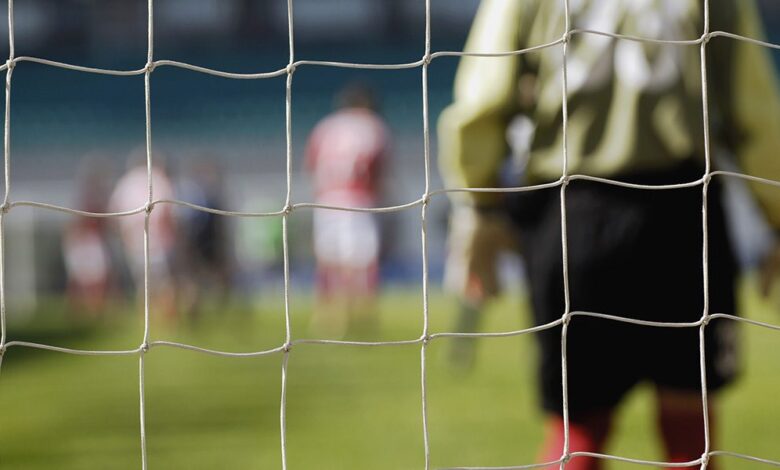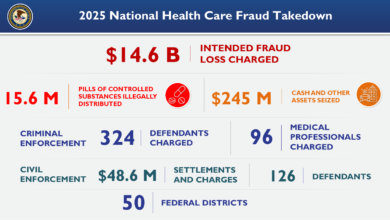Guidelines launched for nurses responding to cardiac arrest during sport

Guidance has been published by Resuscitation UK (RCUK) to help increase cardiac arrest survival rates among athletes and help save lives across all community and professional sporting events.
The guidelines include initial assessment and recognition of cardiac arrest, CPR, defibrillation, airway management and transportation of athletes while CPR and defibrillation is taking place.
“I wholeheartedly support the fantastic work done by all those involved in the publication”
Zafar Iqbal
RCUK noted that sudden cardiac arrest on the field-of-play was a rare but devastating event, with around one in 217,000 people per year suffering a sports-related sudden death.
It said the new document, titled Resuscitation on the Field of Play: best practice guidelines, aims to improve the response to a sudden cardiac arrest and increase the chances of a full recovery.
It added that medical teams could help to achieve this through prompt recognition, high-quality CPR, early defibrillation and effective emergency planning.
The guidelines are designed for medical teams who need to respond to an athlete having a cardiac arrest during or shortly after sporting activity, across all community and professional sports.
But it said elements of the guidelines were easily applicable to those participating in any sporting activity and to all community-based cardiac arrests – with or without a field-of-play medical team.
The guidance states that athletes who have an unexpected collapse and who remain unresponsive should be presumed to have had a sudden cardiac arrest and treated accordingly.
It noted that athletes who have had a sudden cardiac arrest may continue to gasp or have breathing movements, have seizure-like activity and have their eyes open.
It was important to recognise that these signs can be present and that these athletes need immediate resuscitation, warned the document.
In addition, the guidance highlighted that collapse after cardiac arrest could occur during or shortly after any sporting activity and may happen away from the point of sporting action.
Overall, the guidelines said that the general principles of cardiopulmonary resuscitation applied in field-of-play situations.
As a result, early recognition followed by early high-quality chest compressions and defibrillation were likely to give the best chance of survival, according to the document.
But it stressed that the safety of the medical team, the athlete and other personnel was “paramount”, with special considerations needed for certain situations, such as water-based or equestrian events, cycling and motor sports.
In addition, it flagged that traumatic cardiac arrest was a possibility in some circumstances and field-of-play medical teams should train to appreciate and manage this occurrence.
For athletes who have a shockable cardiac rhythm during cardiac arrest, the guidance stated that a minimum of three shocks should be delivered on the field of play if the shockable rhythm persists.
Subsequent transfer from the field of play should be “well-rehearsed”, it noted, and there should be established protocols for onward transport to designated hospitals.
It added: “A comprehensive emergency action plan is essential, and it is the shared responsibility of all those involved in the safe delivery of competitive sport to implement it effectively.”
Among other things, the action plan should outline procedures for essential and advanced resuscitation practice and the size and composition of the field-of-play medical team.
It should also include training, equipment and maintenance, communication and leadership, and interaction with other field-of-play, pre-hospital and hospital team.
RCUK said: “There is a clear opportunity for field-of-play medical teams to use this document to drive excellent practice in resuscitation of athletes who have a sudden cardiac arrest.
“There is also opportunity for them and the athletes and teams that they support to disseminate excellent practice in essential cardiopulmonary resuscitation skills to the wider community,” it added.
The new guidelines were welcomed by several Premier League football clubs, in the wake of situations involving sudden cardiac arrest.
Last season, Brentford matchday stewards Jake Mead-Baker and Abdul Hakazada performed CPR when Raymond Harris suffered a cardiac arrest during a fixture against Newcastle United.
Famously, Danish footballer Christian Eriksen suffered a cardiac arrest during a match at Euro 2020 but has subsequently made a full recovery and is currently playing for Manchester United.
Neil Greig, head of the medical department at Brentford FC, said: “Cardiac health is close to our hearts here at Brentford FC and further research in this area is something we continue to work towards through our Heart of West London partnership.
“We welcome RCUK’s best-practice guidelines which provides important information about dealing with sudden cardiac arrest on the field of play,” he said.
He added: “The more knowledge and education we can spread, the better equipped we can all be about saving lives.”
Meanwhile, Dr Zafar Iqbal, consultant in sports and exercise medicine and head of sports medicine at fellow London club Crystal Palace FC said: “I wholeheartedly support the fantastic work.
“It helps raise further awareness in this important area, which I’ve no doubt will enhance the work, being done in improving survival outcomes, following a cardiac arrest occurring in sport.”






